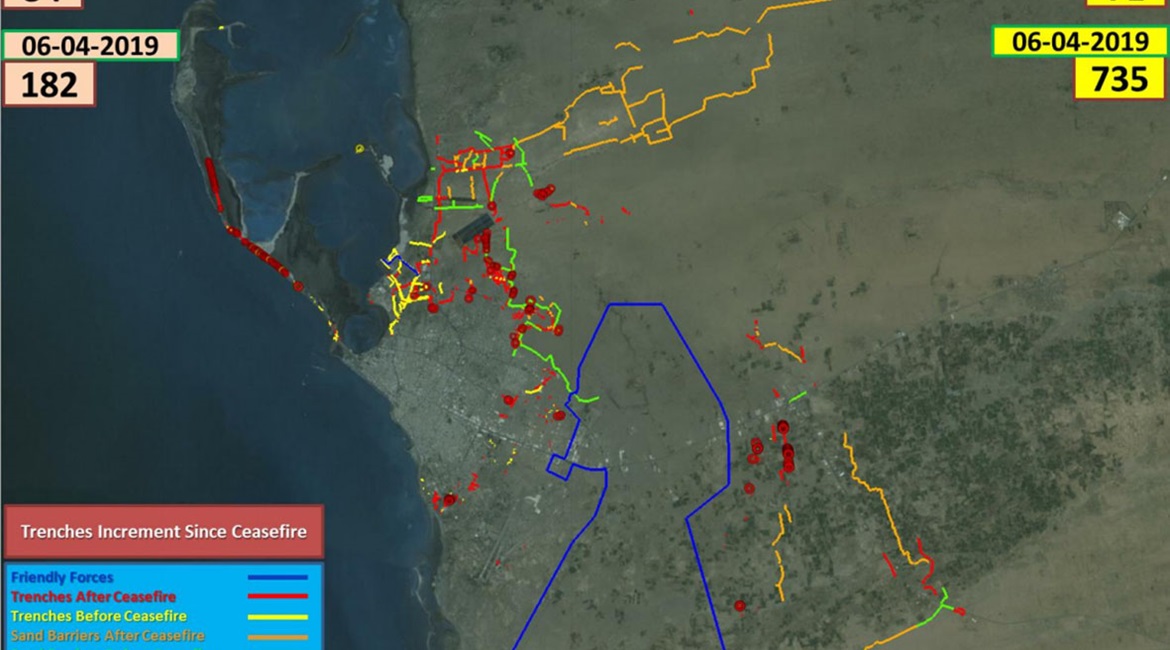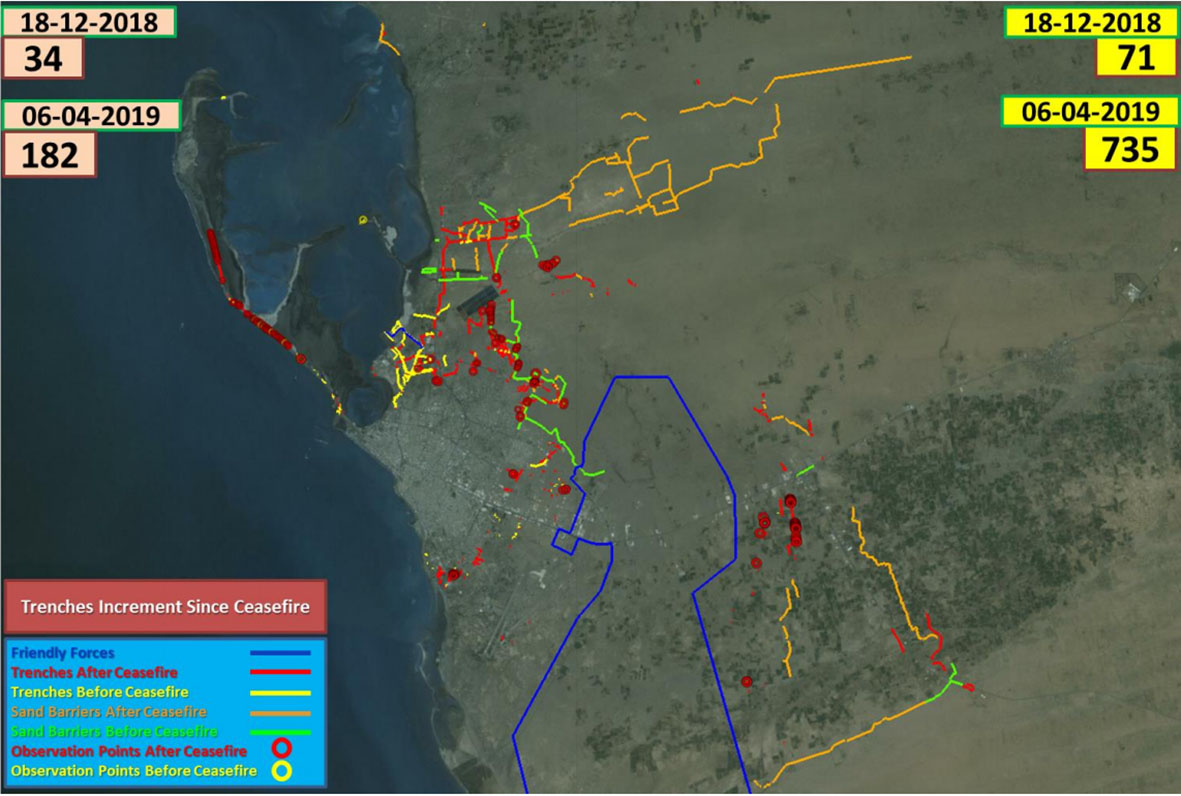
The United Nations (UN) team in Yemen has verified the withdrawal of the Ansar Allah (Houthi) rebel group from the three Red Sea ports that it controlled, the head of the mission announced on 14 May.
Ansar Allah fighters line up at Al-Salif port as they prepare to withdraw on 11 May. (AFP/Getty Images)
Denmark’s Lieutenant General Michael Lollesgaard said Ansar Allah had handed over security at the Al-Hudaydah, Al-Salif, and Ras Issa ports to the coastguard as agreed, but “a lot of work needs to be done” to remove military hardware.
Al-Hudaydah’s port is the entry point for the majority of food aid for rebel-controlled northern Yemen. The surrounding city became a front line in the country’s war when forces backed by the UAE advancing from the south launched an attempt to capture it from June 2018, threatening to worsen an already serious humanitarian situation.
Al-Salif and Ras Issa are further north and are not surrounded by major population centres; the former is mainly used to import grain and the latter to export oil.
The handover of the ports to a neutral force was agreed under the Stockholm ceasefire deal that came into force on 18 December 2018. The agreement stipulated that both Ansar Allah and UAE-backed forces would redeploy to agreed locations outside the city of Al-Hudaydah and the ports and “remove any military manifestations” within 21 days.
Lt Gen Michael Lollesgaard’s said the withdrawal from the ports was the first move in the broader redeployments in Al-Hudaydah. The UN now expects to strengthen its presence at the ports to help manage them and monitor ships attempting to dock.

Looking to read the full article?
Gain unlimited access to Janes news and more...


